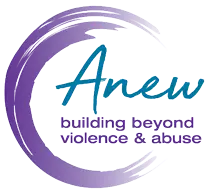Housing
Anew: Building Beyond Violence and Abuse provides housing assistance for victims of domestic violence who are homeless or at risk of homelessness. Programs include transitional housing, rapid re-housing, and homelessness prevention services.
What We Do
Housing Services: 708-798-7737
Transitional Housing:
The transitional housing program is for women and children experiencing homelessness who have also been impacted by domestic violence. In addition to providing temporary housing, the program focuses on providing comprehensive, supportive services which allow participants to achieve their individual goals and prevent future homelessness. Services include temporary, rent-free housing, financial and empowerment related classes, case management, counseling, and housing advocacy. Referrals must be made by a community agency currently working with the family. Direct referrals from prospective participants are not accepted.
Rapid Re-Housing:
The rapid re-housing housing program is for individuals with or without children who are homeless or at risk of homelessness due to fleeing or attempting to flee domestic violence. In addition to providing temporary housing assistance, the program focuses on providing comprehensive, supportive services which allow participants to achieve their individual goals and prevent future homelessness. Services include temporary, rental assistance for housing, housing advocacy, and case management services. Participants may also receive financial and empowerment related education and counseling. Direct referrals from prospective participants as well as referrals from community agencies are evaluated for acceptance.
Homelessness Prevention:
The homelessness prevention program is for victims of domestic violence who are facing a housing crisis due to fleeing or attempting to flee domestic violence. These individuals are at risk of becoming homeless. The program provides one-time rental assistance based on criteria established by the program’s funding sources. Services may also include financial case management addressing budgeting, credit repair, employment and education related goals.
Direct referrals from prospective participants as well as referrals from community agencies are evaluated for acceptance.
Click here to read the Alliance to End Homelessness in Suburban Cook County – Privacy Statement/Policy
